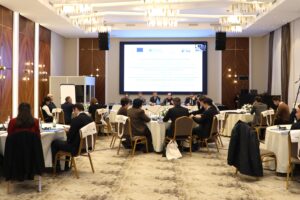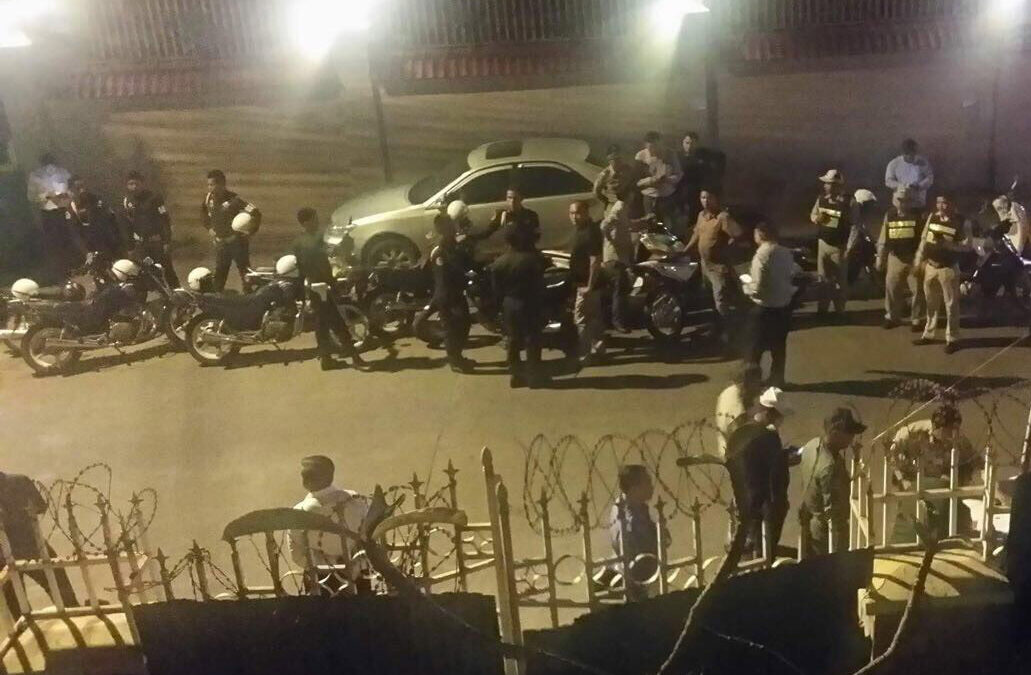
Nov 16, 2017 | News
Today’s decision of the Supreme Court to dissolve the main opposition political party, the Cambodia National Rescue Party (CNRP), has significantly heightened the human rights and rule of law crisis within the country, the ICJ said.
The Supreme Court has also banned 118 of CNRP politicians from political activity for five years.
“By dissolving the main opposition party and banning 118 CNRP politicians from political activity for five years, the Supreme Court is irreparably interfering with the rights of potentially millions of Cambodians to freely choose their political representatives and vote for them in the upcoming elections,” said Kingsley Abbott, the ICJ’s Senior International Legal Adviser for Southeast Asia.
“The fact that the Law on Political Parties was amended to enable the Supreme Court to dissolve political parties shortly before it dissolved the CNRP strongly suggests the entire ‘legal process’ was nothing more than political theatre, inconsistent with human rights and the rule of law.”
A full bench of nine judges of the Supreme Court, including the President, unanimously decided to dissolve the CNRP pursuant to powers contained within Article 44 (new) of the Law on Political Parties (LPP), which was controversially amended twice this year, in February and July 2017.
The lawyers representing the CNRP were not present at Court after electing to boycott the proceedings in protest at their legitimacy.
Furthermore, the President of the Supreme Court, Justice Dith Munty, who read out the decision, is reportedly a member of the ruling Cambodian People’s Party (CPP) and sits on both its Standing and Permanent Committees, raising serious doubts about the independence and impartiality of the Court.
“It makes a mockery of fair justice to have someone in a leadership position within one political party sit in judgment on the conduct of that party’s main opposition. There can be no starker example of an inherent conflict of interest,” Abbott said.
“At an absolute minimum, the President should have recused himself from any role in relation to the case, as should have any other judge sitting on the bench if they hold a similar position within the CPP,” he added.
These concerns are consistent with the ICJ’s findings in a report it released last month, in which it found that the “single largest problem facing the Cambodian justice system is the lack of independent and impartial judges and prosecutors.”
“The problem is two-fold: an endemic system of political interference in high-profile cases and an equally entrenched system of corruption in all others.”
On 23 October 2017, the 26th anniversary of the 1991 Paris Peace Conference on Cambodia, the ICJ and 54 other organizations wrote an open letter to the Secretary-General of the United Nations and the Conference’s co-chairs calling on them to reconvene the members of the Conference, along with other concerned stakeholders, for an emergency summit to discuss the human rights crisis within the country.
“The dissolution of the CNRP sends a strong signal to the international community and all Cambodians that a red-line has been crossed, which makes reconvening the Paris Peace Conference to address the human rights and rule of law crisis within the country all the more urgent,” said Kingsley Abbott.
Contact
Kingsley Abbott, Senior International Legal Adviser for Southeast Asia, ICJ, t: +66 94 470 1345 ; e: kingsley.abbott@icj.org
Background
It has been reported that, on 4 and 5 October 2017, the Cambodia Youth Party and the Funcinpec Party, respectively, filed complaints with the Ministry of Interior (MOI) alleging that the CNRP had violated Articles 6 (new) and 7 (new) of the Law on Political Parties, and asked the MOI to file a complaint with the Supreme Court to dissolve the CNRP.
On 6 October 2017, the MOI filed a complaint with the Supreme Court pursuant to Article 38 (new) of the LPP to dissolve the CNRP.
Article 25 of the International Covenant on Civil and Political Rights (ICCPR), to which Cambodia is a State Party, guarantees the rights of all persons, without any unreasonable restrictions, “to take part in the conduct of public affairs, directly or through freely chosen representatives; and to vote and to be elected at genuine periodic elections which shall be by universal and equal suffrage and shall be held by secret ballot, guaranteeing the free expression of the will of the electors.”
Article 14 of the ICCPR affirms the principle that tribunals judging rights and obligations in legal proceedings be independent and impartial.
Detailed international standards on requirements for a court to be independent have been set out in the UN Basic Principles on the Independence of the Judiciary (1985), and requirements for judicial impartiality have been set out in the Bangalore Principles of Judicial Conduct and Commentary (2002/2007), which includes the standard that “All partisan political activity and association should cease upon the assumption of judicial office” (para 75 of the Commentary).
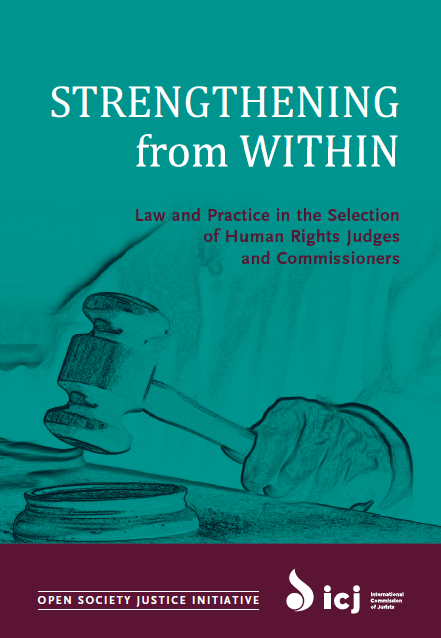
Nov 16, 2017 | Artículos, Informes, Noticias, Publicaciones
Los procedimientos nacionales para la selección de los jueces de los tribunales regionales de derechos humanos frecuentemente no cumplen con los estándares de imparcialidad, inclusión y transparencia, concluye un informe conjunto de OSJI y de la CIJ publicado hoy.
Universal-Fortaleciendo desde Dentro-Publications-Reports-2017-SPA (el informe en español, PDF)
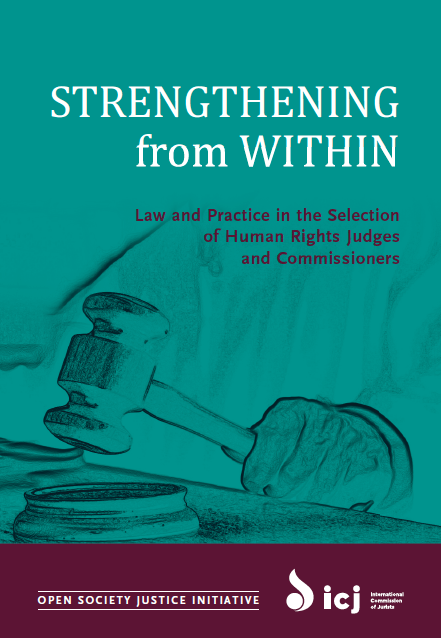
Nov 16, 2017 | Articles, Nouvelles, Publications, Rapports
Les procédures nationales de sélection pour les magistrats des cours régionales des droits de l’Homme ne respectent que trop rarement les standards d’équité, d’intégration et de transparence, selon les conclusions d’un rapport publié aujourd’hui par la CIJ et l’Open Society Justice Initiative.
Ce rapport fait des recommandations visant à assurer la sélection des meilleurs candidats comme magistrats des cours régionales des droits de l’Homme.
Les cours et commissions régionales des droits de l’Homme, y compris la Cour africaine des droits de l’Homme et des peuples, la Cour européenne des droits de l’Homme et la Commission interaméricaine des droits de l’Homme, sont des défenseurs essentiels de l’état de droit.
Pourtant, malgré leur importance, le processus de sélection des magistrats et commissaires qui siègent dans ces organes, c’est-à-dire la façon dont ils sont nominés, contrôlés et in fine sélectionnés, demeure largement inconnu et bien souvent organisé de manière opaque.
Associée à des efforts politiques répétés pour éroder les institutions de droits internationaux, cette opacité souligne le besoin crucial de se concentrer sur le renforcement de ces systèmes depuis l’intérieur.
Ce rapport, consolidé depuis l’intérieur, répond justement à ce défi.
Il met en lumière les processus qu’utilisent les Etats pour nominer et sélectionner les magistrats et commissaires des droits de l’Homme.
En analysant les pratiques de nominations de 22 pays, ce rapport documente la façon dont les procédures de nominations ne respectent pas assez souvent les cadres légaux et les standards internationaux qui seraient censés les guider.
Ce rapport identifie également les pratiques prometteuses et propose des recommandations fondées sur l’expérience.
Un pouvoir judiciaire indépendant est essentiel à l’état de droit: pour les cours nationales, les procédures de sélection du pouvoir judiciaire doivent être équitables, transparentes et basées sur le mérite.
Ainsi que que le fait remarquer ce rapport, les cours et tribunaux internationaux du monde entier sont à la même enseigne.
Universal-Strengthening from Within-Publications-Reports-2017-FRA (rapport complet en français, PDF)
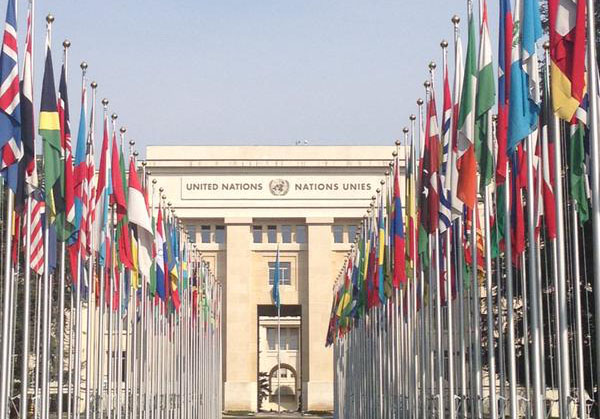
Nov 10, 2017 | News
As Pakistan is set to undergo its third Universal Periodic Review (UPR) on 13 November, the ICJ has urged Pakistani authorities to meaningfully engage with the process to improve the human rights situation in the country.
“Pakistan’s past engagement with the UPR has been characterized by denial and defensive posturing,” said Frederick Rawski, ICJ’s Asia Director.
“As a recently-elected member of the UN Human Rights Council, it is more important than ever for the Pakistan to show that it takes its human rights obligations seriously by engaging with the upcoming UPR in its true spirit,” he added.
During its second UPR in 2012, Pakistan received 167 recommendations, of which it rejected seven, noted 34, and accepted 126.
The seven recommendations rejected by Pakistan relate to some of the most serious human rights violations in the country, including recommendations to adopt an official moratorium on the death penalty with a view to abolishing capital punishment in law and practice, repeal blasphemy laws, and decriminalize adultery and non-marital consensual sex.
Even accepted recommendations have been largely ignored in the four years since the previous UPR, the ICJ notes.
Enforced disappearances are still not recognized as a distinct, autonomous crime; perpetrators of gross human rights violations continue to escape justice; there has been complete inaction to prevent abuse of so-called blasphemy laws; and freedom of expression is often restricted on vague grounds such as “national security” and “immorality”.
“Pakistan’s human rights situation has in many ways deteriorated since 2012,” Rawski added.
“Yet – as reflected by Pakistan’s national report for the upcoming UPR – the authorities apparently remain in a state of denial about the dire human rights implications of these new measures,” he said.
These measures include the lifting the informal moratorium on the death penalty and carrying out nearly 500 executions in less than three years – among the highest in the world; passing laws allowing military courts to try civilians for certain terrorism-related offences; and a new wave of crackdowns on NGOs, journalists and human rights defenders, including retaliating against NGOs for presenting “a very bleak picture” of the country’s human rights situation to the UN.
“UN member states on Monday should urge Pakistan to end the dangerous downward spiral on rights by ending repression, respecting fundamental freedoms, and holding perpetrators of violations responsible,” Rawski said.
Contact
Frederick Rawski, ICJ Asia Pacific Regional Director, t: +66 64 478 1121, e: frederick.rawski(a)icj.org
Reema Omer, ICJ International Legal Adviser for Pakistan (London), t: +447889565691; e: reema.omer(a)icj.org
Additional information
The UPR is a unique mechanism of the UN Human Rights Council aimed at improving the human rights situation of each of the 193 UN Member States. Under this mechanism, the human rights record of all UN Member States is peer-reviewed every four to five years by the UPR Working Group, consisting of the 47 UN Member States of the Human Rights Council; however, any UN Member State can take part in the discussions and the dialogue during the UPR of the reviewed States. States then make recommendations to the country under review, which has the option of accepting or noting the recommendations.
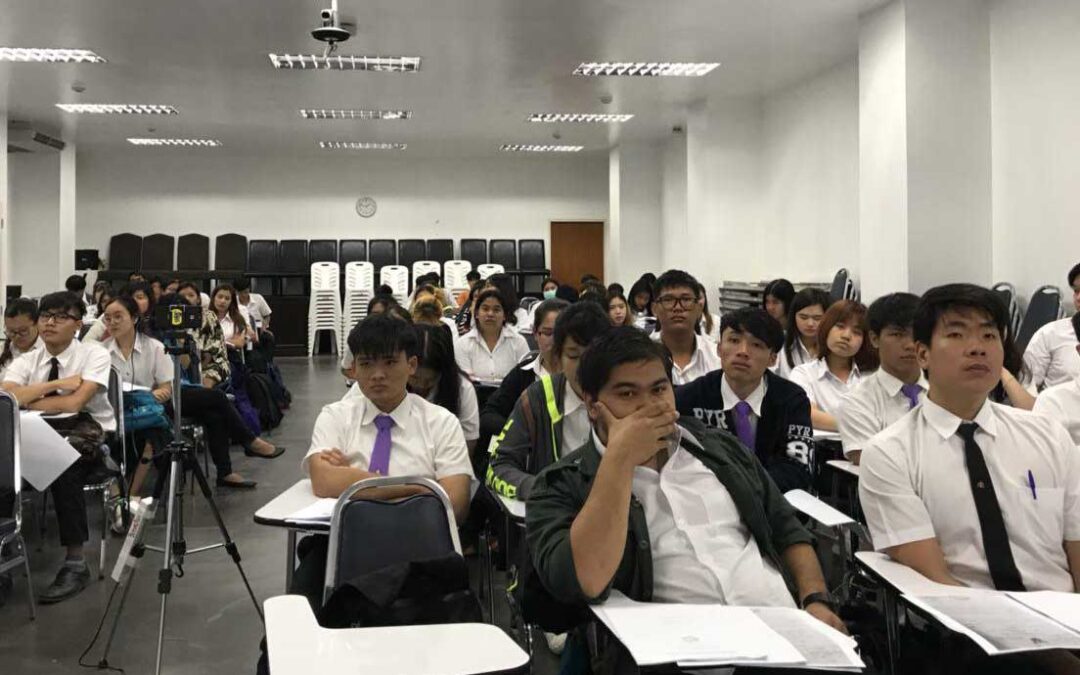
Nov 8, 2017 | News
Today, the ICJ addressed an academic seminar on the topic of “Post-mortem Examinations and Inquires”, organized by Chiang Mai University’s Faculty of Law, in collaboration with the Cross Cultural Foundation, a partner of the ICJ.
Participants in the seminar, which was held at Chiang Mai University’s Faculty of Law campus, included undergraduate students and lecturers from Chiang Mai University.
The ICJ’s speakers at the workshop were Sanhawan Srisod, ICJ National Legal Adviser, who delivered an introduction to International Human Rights Law, and Kingsley Abbott, ICJ Senior International Legal Adviser, who addressed the right to life, and the international law and standards as they relate to investigations including the rights of victims and family members.
Other speakers at the Workshop were Preeda Nakphew a lawyer with the Cross Cultural Foundation, and Sarawut Pratoomraj, a Law Reform Officer with the Law Reform Commission of Thailand.
The seminar was part of an ongoing engagement between the ICJ and Chiang Mai University’s Faculty of Law.









